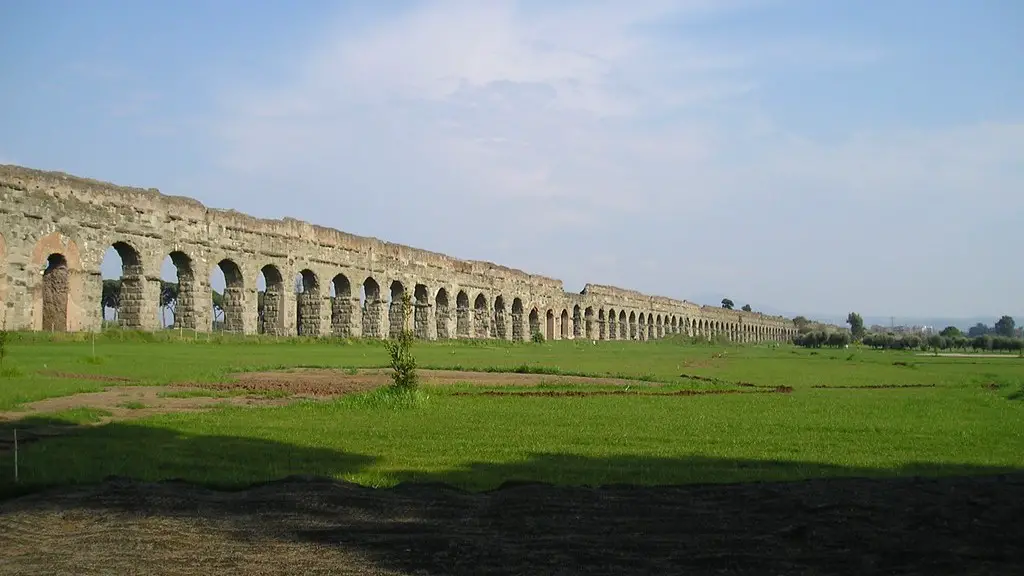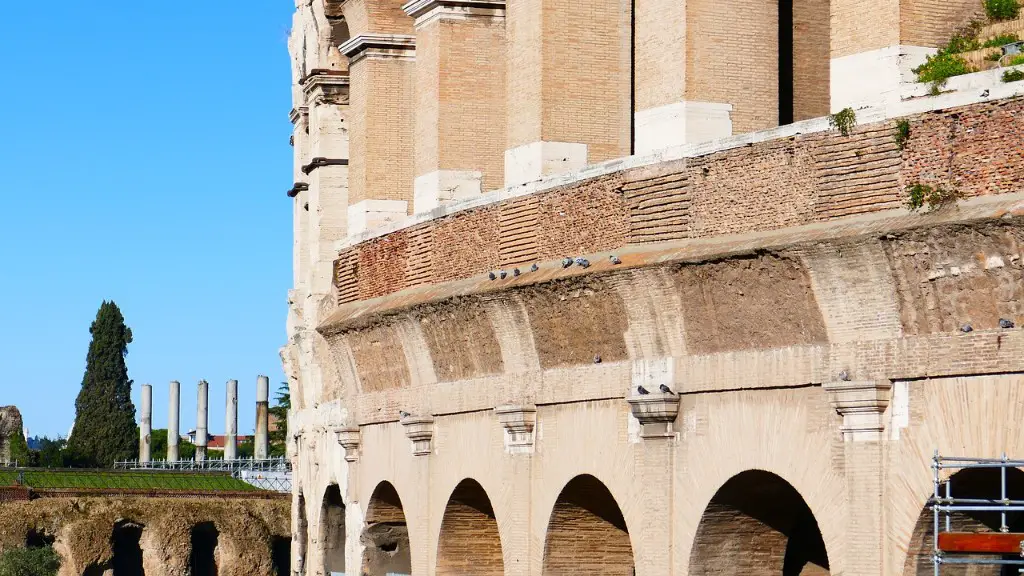Ancient Rome: The First Civil War
The first recorded Roman civil war began in 49 BC between Julius Caesar, a former dictator and general for the Roman Empire, and the Roman senate. Led by Pompey the Great, the senate defended the Republic against Caesar’s desire to become the absolute ruler of its people. Julius Caesar and his supporters, known as the Populares, had the support of the people, while the Optimates, led by Pompey had the majority of senators on their side. This conflict tore apart the already weakened Roman Republic, making way for an empire that would rule much of the western world.
The year before the war began, Julius Caesar had crossed the Rubicon River in northern Italy and marched his army toward Rome. This was an illegal act and prompted the senate to issue an ultimatum to Caesar, ordering him to disband his army or be declared a public enemy of the Republic. Caesar chose to ignore the demand and continued south, eventually laying siege to the city of Corfinium, where a loyalist stronghold had been established. This was the beginning of open civil war.
For the next three years, Caesar and Pompey fought for control of the Roman Empire. They clashed in numerous battles, most notably in Dyrrhachium (48 BC) and Pharsalus (48 BC), until Pompey and his forces were defeated in 47 BC. Caesar achieved magnificent victories against great odds, gaining the admiration of the Roman people, who declared him the victor of the civil war and dictator thereafter.
The first civil war in Ancient Rome is seen as a major event in world history, as it marks the end of the Republic and the beginning of the Roman Empire. It was the culmination of a long standing political struggle between two factions, the Optimates, who sought to maintain the status quo of the Republic, and the Populares, who sought to challenge the Optimates and extend the peoples’ power in the Roman government. It was a battle between two leaders who were already deeply ingrained in Roman history, and it came to signify a shift in the way that Rome operated going forward.
The war had huge ramifications for the Roman Empire. It showed the Roman Senate that their power was not absolute, and it paved the way for Julius Caesar to become the first Emperor of Rome. It ushered in a new age of Roman politics and ushered out the Republic’s centuries-long system of rule. The aftermath of the civil war also set the stage for further civil conflicts and military conflicts in the Roman Empire, as various factions fought for control or for a different form of government.
The implications of the civil war in Ancient Rome are still being studied and discussed today, as scholars and academics look to understand the political, social and military implications of this fateful conflict. Experts believe that it had a profound impact on the development of the Roman Empire and its tumultuous road to world domination.
The Influence of Julius Caesar in Ancient Rome
Julius Caesar had a deep influence on Ancient Rome, and his influence can be seen in many aspects of the Roman Empire. He initiated numerous military campaigns, curbed political turmoils, and introduced new legislation which changed the way the state functioned. Caesar is also credited for introducing a number of Latin terms into the Roman lexicon, such as the term “dictator,” which was used by later Roman rulers.
One of the most lasting effects of Julius Caesar’s rule is the Julian calendar, which laid the foundation for the Gregorian calendar used today. He changed the names of the months and the number of days in the different months, creating a standard calendar system which lasted for centuries. Caesar also instituted a number of civil reforms, such as guarantees of property rights, a more open judicial system, and the introduction of new taxes.
Part of Caesar’s lasting legacy are his victories in battle. He was a masterful general who won major victories against great odds, at times routing entire armies and giving the Roman people a sense of confidence and security. His victories gave the Roman Empire an aura of invincibility, and his skill and leadership in battle were instrumental in the advancement of Rome’s imperial ambitions.
Even more than his military prowess, Julius Caesar was perhaps best known for his shrewd political tactics. He was a master tactician who knew when to use both force and diplomacy to achieve success. He was able to navigate the political intrigues of Rome and eventually laid the foundation for an imperial monarchy which would dominate the Mediterranean world for hundreds of years to come.
Julius Caesar was a pivotal figure in the history of Ancient Rome and his influence is still felt today in countless ways. As one of the most famous rulers in history, Caesar left an indelible mark on Roman history and changed the course of world history in the process.
The Impact of the First Roman Civil War
The first civil war in Ancient Rome had a deep and lasting impact on the development of the Roman Republic and its eventual transformation into an Imperial Monarchy. It put an end to the Senate’s monopoly on power and provided an opening for Julius Caesar to take control of the government. It also weakened the Republic and made it vulnerable to the military aspirations of powerful Roman generals.
The consequences of the civil war were profound. Caesar became the absolute ruler of Rome, ushering in an era of unprecedented prosperity and stability. He introduced a number of reforms which sought to bring more equity to the Roman population, while at the same time protecting the power and privilege of the ruling class. Other Roman generals, such as Pompey and Marc Antony, continued to fight for power, further weakening the Republic in the process.
Today, the civil war in Ancient Rome is an important event in world history and a reminder of the fragility of republican government. It serves as an example of the corrupting influence of power and how unchecked ambition can lead to disastrous consequences. It also shows how societal divisions can lead to civil unrest and the breakdown of social order.
Conclusion
The first civil war in Ancient Rome was a tumultuous event which had lasting consequences for the Roman Empire and the world. It marked the end of the Republic and the rise of the Roman Empire, ushering in an era of unprecedented prosperity and stability under the rule of Julius Caesar and his successors. The war also showed the power of political and military ambition, and the fragility of republican government. Today, it is an important event in world history which serves as a reminder of the dangers of unchecked ambition and the importance of compromise and compromise in government.



